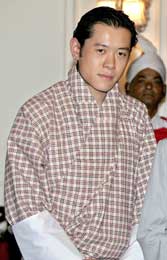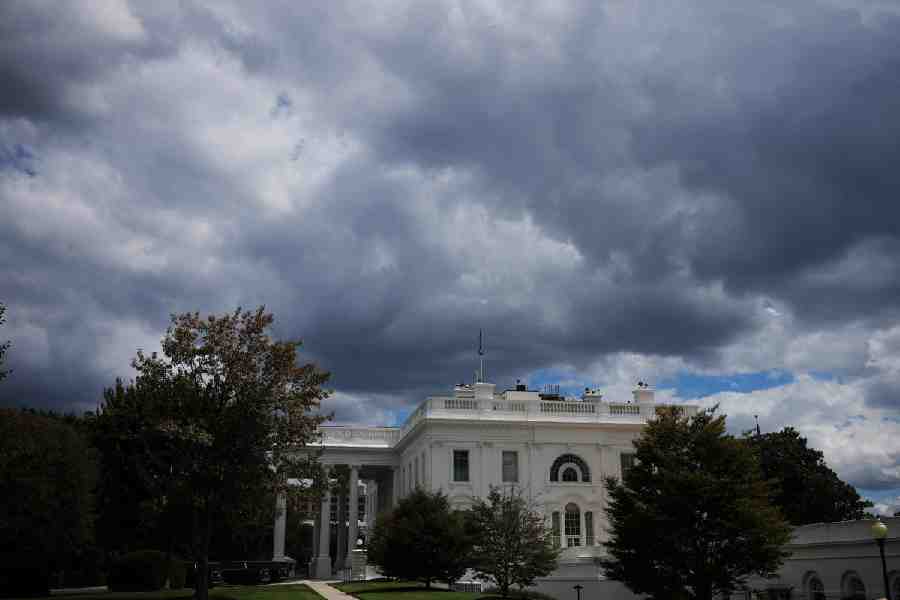|
|
| Eastward ho! |
Edward Said?s Orientalism, published in 1978, gave intellectuals and writers (themselves, like Said, often migrants) from once-colonized nations a language that liberated and shackled in almost equal measure. The liberations that Said?s critical perspective provided, which gave both Europeans and non-Europeans a shrewder and more unillusioned sense of the subterranean ways in which power operated through the cultures of Empire, are now so familiar that we might make the mistake of taking them for granted: which would be foolish, as Eurocentrism is alive and well, and takes new and unexpected forms with every political epoch. Besides, as Said himself knew, the force of his critique has diminished and ossified over the years into professional interests and job profiles: this was something he was clearly troubled by.
The limitations of Said?s seminal study have to do with the idea it?s given us about how the post-colonial might engage with the colonizer?s (that is, European, or Western) culture, and with history; and, explicitly, how the European engages with non-European antiquity. And so we?re left with a somewhat monochromatic type where both the post-colonial and the European are concerned: a type whose relationship to European or Oriental culture, as may be the case, is defined almost exclusively by questions of power and appropriation, and whose own culture and past are at once static and strangely blurred. Orientalism, at least at first glance, doesn?t seem to tell us or explain where its author, in all his many-sidedness, comes from ? Western metropolitan intellectual; radical political activist; post-colonial critic; champion of canonical European literature; classical pianist. What is it about the long histories of colonization and modernity that produced these intriguingly separate, even contrary, selves in Said? Orientalism, at least the way we read it now, doesn?t seem to give us an explanation; and for Marxist critics like Aijaz Ahmed, the contradictions are a sign of bad faith.
Yet it?s this book that contains a celebration of the author of La Renaissance Orientale, Raymond Schwab, and gives us, in Schwab, an outline of another idea of, and way of responding to, the Orient, and, by extension, to a culture other than one?s own. Schwab, Said notes, himself looks back to another figure while describing the startling penetration of European culture by the Orient, or their interpenetration by one another: the figure is Abraham-Hyacinthe Anquetil-Duperron (1731-1805), ?an eccentric theoretician of egalitarianism, a man who managed in his head to reconcile Jansenism with orthodox Catholicism and Brahmanism?, and who, journeying to Asia, ?travelled as far east as Surat? in India, ?there to find a cache of Avestan texts, there also to complete his translation of the Avesta?. Here, Said quotes Schwab on what the latter saw to be Anquetil-Duperron?s legacy; it is one of the most affirmative and exuberant passages on cultural contact ever written, though its rhetoric needs to be distinguished somewhat from declamations on hybridity that are common today: ?In 1759, Anquetil finished his translation of the Avesta at Surat; in 1786 that of the Upanishads in Paris ? he had dug a channel between the hemispheres of human genius, correcting and expanding the old humanism of the Mediterranean basin... Before him, one looked for information at the remote past of our planet exclusively among the great Latin, Greek, Jewish, and Arabic writers... A universe in writing was unavailable, but scarcely anyone seemed to suspect the immensity of those unknown lands. The realisation began with his translation of the Avesta, and reached dizzying heights owing to the exploration in Central Asia of the languages that multiplied after Babel. Into our schools...he interjected a vision of innumerable civilisations from ages past, of an infinity of literatures??
According to Said, the fact that certain Europeans opened themselves, in the late 18th and the 19th centuries, to the cultural store of the Orient resulted, in those individuals, in a ?new, triumphant eclecticism?. Among the figures he mentions are, of course, Anquetil-Duperron, and Sir William Jones, the founder of Indology, whose researches on the Orient, Hinduism, and the Sanskrit language include translations from ? and, in effect, a recovery of ? the great 4th century Sanskrit poet, Kalidasa. Yet Said is hard on the latter ? ?[w]hereas Anquetil opened large vistas, Jones closed them down, codifying, tabulating, comparing? ? as if Jones somehow embodied more of the colonial project and less of the ?triumphant eclecticism? than Anquetil-Duperron did. This is borne out, for Said, by Jones?s personal itinerary, and, for us, by the way Said describes it: ?In due course he was appointed to ?an honourable and profitable place in the Indies?, and immediately upon his arrival there to take up a post with the East India Company began his course of personal study that was to gather in, to rope off, to domesticate the Orient and thereby to turn it into a province of European learning.?
This reservation about Jones or what he represents ? Jones as a symbol of 19th-century European scholarship?s ?domestication? of the Orient ? has been echoed by others. The historian, Dipesh Chakrabarty, says something similar while enquiring into why he finds it possible to engage in a form of serious intellectual commerce with European philosophers, but not with the many Indian ones going back to antiquity: ?Sad though it is, one result of European colonial rule in South Asia is that the intellectual traditions once unbroken and alive in Sanskrit or Persian or Arabic are now only matters of historical research for most ? perhaps all ? modern social scientists in the region.? But were intellectual traditions in south Asia ?once unbroken and alive? ? ?once? referring to the hazy and golden period before colonization? This speculation is all the more surprising because it comes only a few sentences after Chakrabarty admits, pertinently, that the idea of an ?unbroken? European intellectual tradition going back to the Greeks is a relatively recent construct. The idea of an unbroken Indian tradition is itself probably an Orientalist invention, and Jones one of its early architects.
The ?Orient? itself comes into being in the early period of colonialism, and with Orientalist scholarship, as it never had before; and one of the earliest writers to perceive its great cultural, emotional, philosophical, and political potential is Tagore. Certainly, a hundred years prior to Tagore (and to Jones and his researches), no poet in Bengal beheld the Orient and its unbroken past as a foundation, a point of origin, and a parameter for the self and for creativity; there is no ?Orient?, or ?East?, for the medieval poets Chandidas, Vidyapati, or Jayadeva, as there is, so profoundly, for Tagore. Nor would it have occurred to Chandidas to locate himself in history, and to claim and create pan-Indian lineages with certain Indian poets and texts, with Kalidasa or the Upanishads, as Tagore does. And, for Chandidas, naturally, there is no Europe; for Europe was born, for the Indian, at about the time the Orient was ? twins, though not identical ones, that had, in the Indian?s mind, a momentous and painfully coeval birth. The researches of the likes of Anquetil-Duperron and even Jones brought to certain Europeans a ?new, triumphant eclecticism?, says Said; but that eclecticism had a relatively brief legacy in the West: by the early 20th century, it had narrowed itself to an almost exclusively European definition, so that words like ?cosmopolitan? were more or less interchangeable with ?European?. Said doesn?t mention ? maybe it doesn?t occur to him ? that the true and most significant inheritors of Anquetil-Duperron?s ?triumphant eclecticism? weren?t Europeans, but Orientals; that it was they who took fullest intellectual and artistic advantage not only of the advent of Europe in their consciousness, as they did, but of the fact of the ?Orient?, the ?correction? and ?expansion? of ?the old humanism of the Mediterranean basin?. It?s in this context that we must situate the importance of Tagore, born roughly eighty years after Anquetil-Duperron?s translation of the Upanishads, in 1861; and, indeed, that of Said, as one of the latest in that line of Orientals appropriating and complicating Anquetil-Duperron?s inheritance.











